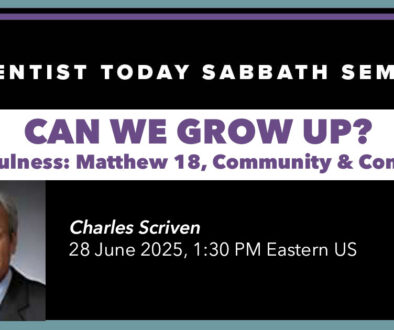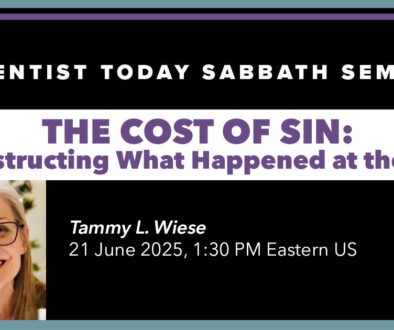ATSS: Raj Attiken on “Competing Religious Liberties”
7 September 2022 |
by Raj Attiken
The following incidents, as reported by news media, have at least one feature in common: they all involve some question of freedom of conscience or religious liberty:
- Twenty-three Amish families in Minnesota lived in homes without running water or a modern sewage system because of their religious practice of rejecting the use of modern technology. County officials posted notices on the homes calling them “unfit for human habitation.” They threatened criminal and civil action against the families, threatened seizures of their farms, and called for an inspection of the Amish homes to ascertain whether their refusal of other modern technologies was not also against the law.
- A baker refused to make a wedding cake for a same-sex couple, citing religious reasons. Other bakers, florists, photographers, and business owners similarly cited religious objections when refusing to serve gay and lesbian customers.
- A company refused to hire a Muslim woman because she wore a head scarf (hijab) as part of her religious practice. The company claimed that the scarf clashed with its dress code.
- Early in 2022, a group of four Sikh men in the District of Columbia sought a religious exemption from the Marine Corps allowing them to keep the beards and turbans that they said are essential to the practice of their religion.
- A mail carrier who worked for the U.S. Postal Service (USPS) observed the Sabbath on Sundays. When the USPS contracted with Amazon to deliver Amazon packages, he was required to deliver on Sundays. The mail carrier faced discipline for refusing to work on Sundays.
- In Islam, both men and women are obligated to pursue knowledge. The Quran has over 800 references to the importance of acquiring knowledge. It condemns those who are not learned. On March 23, 2022, the first day of the school year in Afghanistan, eager female students arriving for class found closed gates and armed Taliban guards.
- Compulsory school attendance laws are problematic to Amish families. The Amish send their children to one-room schools only until they’re 14 years old. They assert that sending their children to high school and college would endanger their own faith community by preparing their children for a way of life outside their redemptive community.
- Since the beginning of the COVID-19 pandemic, hundreds of people have sought religious exemptions from vaccination requirements and mask mandates. The principle is well established in American law and culture that public health measures are a legitimate state interest.
- In American Judaism today, there is broad consensus that blanket abortion bans are a violation of the religious liberty of every Jew. (Link to my full article here: https://atoday.org/abortion-faith-and-religious-liberty/)
- For centuries, Mexican indigenous peoples and Native Americans in the Southwest, USA, have used peyote, a small, slow-growing hallucinogenic cactus, for certain religious ceremonies and rituals. Peyote is classified as a Schedule 1 controlled drug, and its use is illegal in the U.S.
The claim to “religious liberty” has been used as a sword or as a shield by individuals and organizations to bolster their particular stance or action in specific situations. Near the core of religious liberty is the freedom not to be coerced into doing that which your religion prohibits you from doing. It is also the freedom to do what your conscience informs you as your obligation before your God.
In its official declarations, the Seventh-day Adventist Church claims to view religious liberty as “the primordial human right that undergirds all human rights.” It describes religious liberty to include “the fundamental human right to have, adopt, or change one’s religion or religious belief according to conscience and to manifest and practice one’s religion individually or in fellowship with other believers, in prayer, devotions, witness, and teaching, including the observance of a weekly day of rest and worship in harmony with the precepts of one’s religion, subject to respect for the equivalent rights of others.” (https://www.adventistliberty.org/founding-documents)
There are two main arenas in which religious liberty theory meets practice in the life of our society. One is the law, where the question of religious liberty is a legal question. The other is community life – where principle and practice come together on a personal, human scale.
It is this latter issue that we will explore at the Adventist Today Sabbath Seminar on September 10. We will examine religious liberty from an individualistic understanding of the right of conscience. We will also note why religious liberty cannot be embodied solely in the practice of lone individuals, because at its essence it is about relational commitments. It describes the freedom of a community to live in accordance with a moral vision shared among its members. We will examine the dilemma of competing religious liberty convictions – how the exercise of religious freedom by one person may infringe on the religious freedom of another. You will have opportunity to weigh in with your own perspectives and case studies.
Teacher:
Raj Attiken is an adjunct professor at Kettering College, and the retired president of the Ohio Conference.
Moderator:
Randi Robertson is an instructor/pilot for JetBlue Airlines. She teaches at JetBlue University at Orlando International Airport.
How to join:
One-click link: https://us06web.zoom.us/j/85107829842
Passcode: ESTHER
ATSS starting time depends on where you are. If you’re on the west coast of the United States, it’ll be 10:30 AM. On the east coast, 1:30 PM.
Times around the world:
-
- Reykjavík: 5:30 PM
- College Place: 10:30 AM
- Lincoln: 12:30 PM
- Denver: 11:30 AM
- Bracknell: 6:30 PM
- Loma Linda: 10:30 AM
- Nairobi: 8:30 PM
- Gackle: 12:30 PM
- Hosur: 11:00 PM
- Waco: 12:30 PM
- Keene: 12:30 PM
- Kaarina: 8:30 PM
- Stockholm: 7:30 PM
- Möckern: 7:30 PM
- Cape Town: 7:30 PM
- Madrid: 7:30 PM
- Paris: 7:30 PM
- Honolulu: 7:30 AM
- Cooranbong: 3:30 AM (Sunday)
- Perth: 1:30 AM (Sunday)
- Manila: 1:30 AM (Sunday)
- Tokyo: 2:30 AM (Sunday)
- Auckland: 5:30 AM (Sunday)
The class is intended to last about 2 hours, though the conversation often continues to 4 PM (Eastern time).
About our class:
- The AT Sabbath Seminar is intended to be a courteous forum. We discuss and ask questions politely. We don’t accuse, get angry, or put people down.
- Stick to the topic in both comments and chat discussion.
- Make your comments and questions short—don’t dominate.
- Keep your microphones muted unless you are called upon to make your comment or ask your question.
- Indicate your interest in speaking by raising your electronic hand—under the “reactions” button.
- Please use your name when you sign in! Not your phone number, not your initials. This will help us differentiate you from unwelcome guests who want to disrupt us. You can set your name after signing on by clicking on the 3 dots next to your picture, which drops down a menu.
- If it should happen that we are attacked so that we have to stop the meeting, we’ll quickly post a new meeting link on our AT Facebook page.
We look forward to getting acquainted with you!
Coming up:
- Gerald Winslow
- Jon Paulien
- Sigve Tonstad
- Laurence Turner
- Jim Walters
- Heidi Campbell
- Bill Knott




